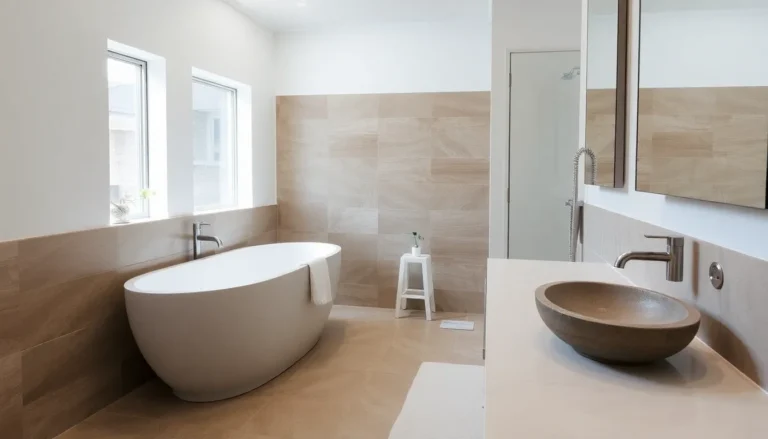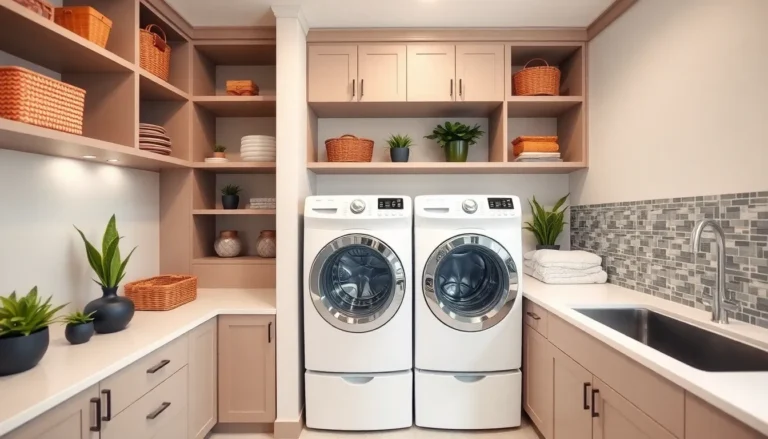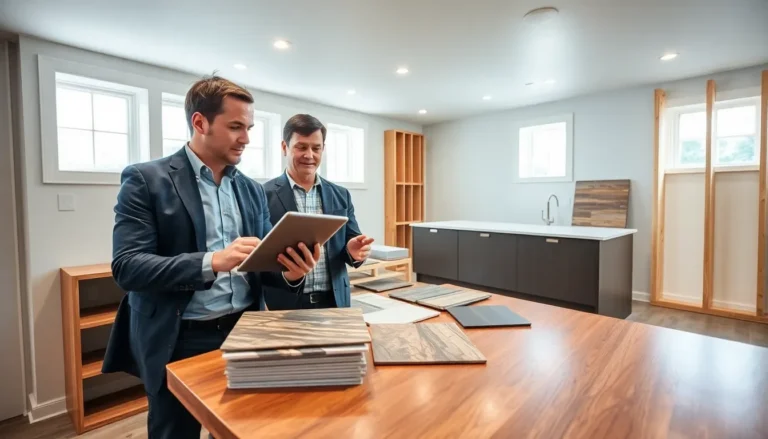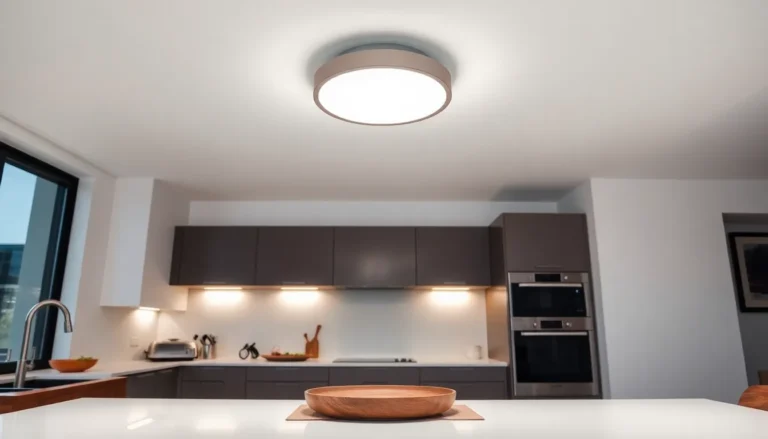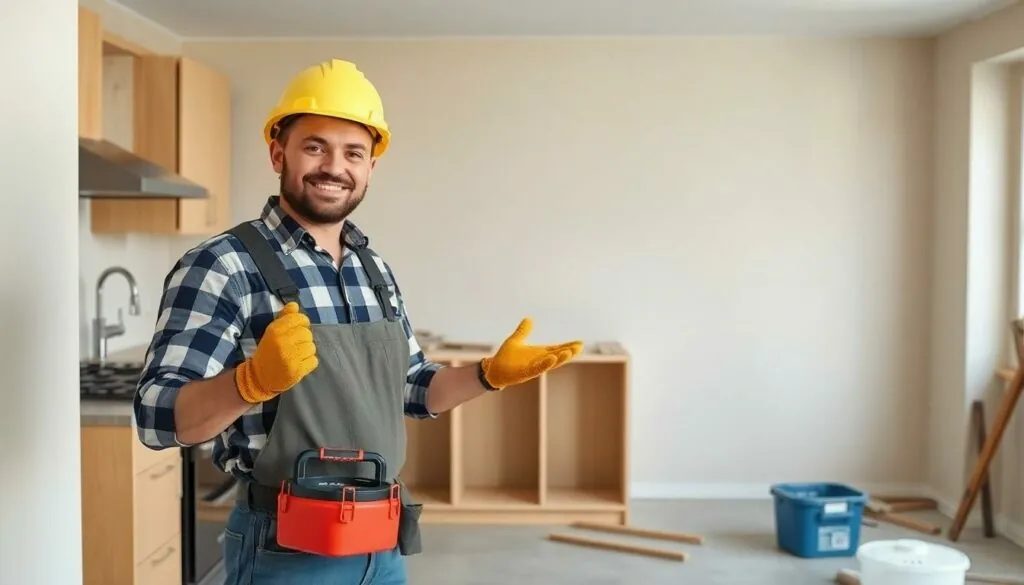Table of Contents
ToggleHome renovations can feel like waiting for a pot of water to boil—agonizingly slow yet somehow always a little exciting. If you’ve ever tackled a home project, you know the thrill of imagining your dream space, but then reality hits. How long will it actually take? Spoiler alert: it’s not a one-size-fits-all answer.
From tiny bathroom updates to full-blown kitchen overhauls, the timeline can vary more than a cat’s mood. Factors like the size of the project, the complexity of the work, and even the availability of materials can stretch your renovation timeline. So, grab a cup of coffee and settle in, because understanding how long home renovations take will help you plan better and keep those stress levels in check.
Factors That Affect Renovation Time
Several factors significantly influence the time required for home renovations. Understanding these variables helps set realistic timelines for projects.
Size of the Renovation
The overall size of the renovation plays a crucial role in determining the duration. Larger projects, such as full home remodels, generally take more time than minor updates. For example, a kitchen renovation may require four to six weeks, while a complete home renovation could extend several months. Space considerations impact not only labor hours but also project management. As the scale increases, so do the logistical challenges, which can further prolong timelines.
Complexity of the Project
Complexity directly correlates with time frames in home renovations. Projects involving intricate designs or structural changes often demand more planning and execution time. A simple bathroom update usually completes within two to three weeks, whereas adding a room or major electrical work can take months. The addition of custom features or high-end finishes also complicates the process. Each unique aspect adds layers to project management, thereby extending the renovation timeline.
Availability of Materials
Material availability significantly affects project duration. Delays in sourcing essential supplies can stall renovations. Popular materials or custom orders frequently face longer lead times. For instance, granite countertops or specialty fixtures may take weeks to arrive, impacting the overall completion time. Moreover, unforeseen shortages can disrupt carefully laid out schedules. Homeowners should plan ahead and establish solid communication with suppliers to mitigate these potential delays.
Typical Timelines for Different Projects

Understanding timelines for specific renovation projects helps homeowners manage expectations. Each type of project varies significantly in duration.
Kitchen Renovations
Kitchen renovations typically take between 6 to 12 weeks. Simple updates may require as little as 4 weeks while extensive remodels, including layout changes, can extend beyond 12 weeks. Complications often arise from plumbing or electrical work, increasing the timeline. Coordinating appliance deliveries can also add delays. Engaging with a contractor early helps streamline the planning process.
Bathroom Renovations
Bathroom renovations generally last around 3 to 8 weeks. Minor updates, like fixture replacements, can finish in under 3 weeks. However, major alterations, such as moving plumbing or electrical work, may push timelines longer. It is common for homeowners to overlook the drying time for materials like tile or adhesive, affecting the overall schedule. Selecting finishes early and confirming contractor availability mitigates delays.
Whole-Home Renovations
Whole-home renovations commonly take 3 to 6 months or more. Project complexity plays a significant role; extensive alterations demand more coordination and labor. Homeowners scheduling phases can streamline the process, minimizing downtime between stages. Unexpected issues, like structural repairs or permitting delays, may also impact timelines. Staying proactive in communication with contractors ensures better project flow.
Planning for Renovation Duration
Planning renovation duration involves understanding the specific timelines for different projects. Homeowners should approach this stage with clear expectations about how long each aspect of the renovation may take.
Creating a Realistic Timeline
Establishing a realistic timeline starts with assessing project details. Identify the scope, size, and complexity of the renovation to gauge required time. For instance, kitchen renovations range from 4 weeks for minor updates to over 12 weeks for extensive remodels. Bathroom projects typically span 3 to 8 weeks, depending on alterations. Whole-home renovations frequently require 3 to 6 months or longer. Engaging with contractors early in the process assists in creating accurate timelines. Prioritizing proactive communication also helps clarify how long tasks will take.
Allowing for Unexpected Delays
Anticipating unexpected delays can save stress and frustration. Delays often stem from unforeseen issues, such as structural complications or material shortages. It’s wise to include buffer time within project timelines to accommodate these surprises. Contracted professionals might face setbacks, particularly with custom materials that take longer to source. Homeowners should monitor progress closely and maintain regular updates with contractors. Keeping a flexible mindset enhances the overall renovation experience, making it easier to adapt to changes as they occur.
Tips for Speeding Up Renovations
Speeding up home renovations can significantly impact timelines and reduce stress. Implementing practical strategies ensures a smoother experience.
Hiring the Right Contractors
Choosing qualified contractors greatly affects renovation speed. Look for professionals with proven track records in similar projects. Verifying licenses and insurance protects against potential issues. Discuss project timelines before signing any contracts. Establishing clear communication guidelines keeps everyone aligned. A contractor’s efficiency can expedite material sourcing and labor management, further streamlining the process. Hiring specialists for complex tasks also enhances efficiency, ensuring quality work without unnecessary delays.
Efficient Project Management
Managing projects effectively prevents bottlenecks during renovations. Creating a detailed timeline for each phase helps keep the team accountable. Assigning specific tasks to team members accelerates progress. Regular check-ins promote transparency and address concerns quickly. Utilizing project management tools allows for real-time updates and tracking. Anticipating potential challenges fosters adaptability, keeping the project on schedule. Strong organization minimizes downtime between tasks, making the entire renovation process more efficient.
Conclusion
Home renovations are a journey filled with excitement and challenges. Understanding the factors that influence timelines can empower homeowners to navigate this process with confidence. By setting realistic expectations and maintaining open communication with contractors and suppliers, they can minimize stress and avoid common pitfalls.
Planning for potential delays and incorporating buffer time into schedules can lead to a smoother renovation experience. With the right approach and mindset, homeowners can transform their spaces while enjoying the process. Ultimately, patience and preparation are key to achieving the dream home they’ve envisioned.


